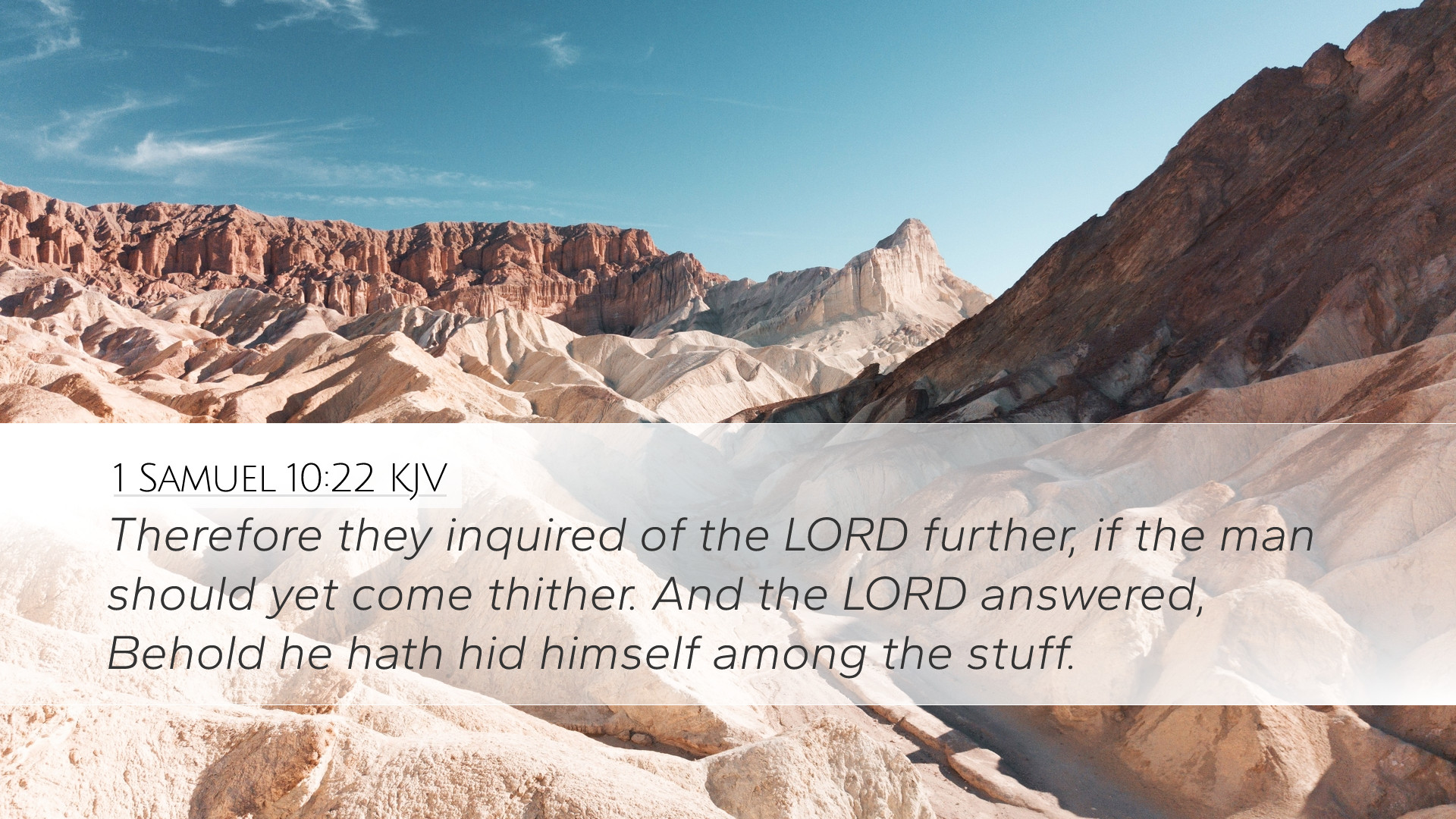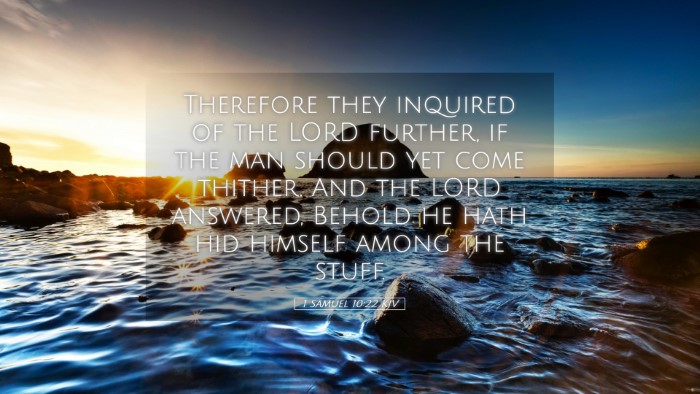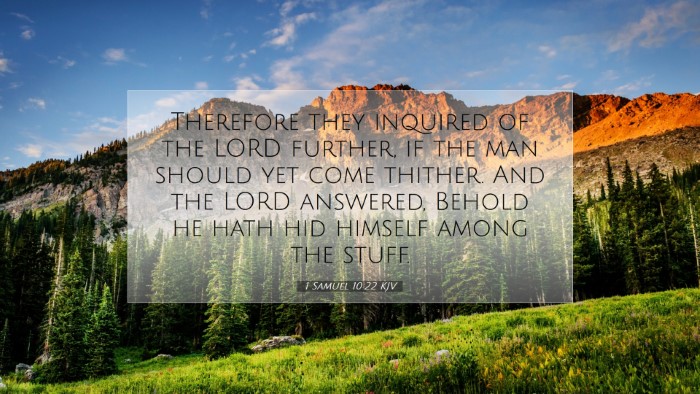Bible Commentary on 1 Samuel 10:22
1 Samuel 10:22 (KJV): "Therefore they enquired of the LORD further, if the man should yet come thither. And the LORD answered, Behold, he hath hid himself among the stuff."
Introduction
This verse provides a pivotal moment in the anointing of Saul as the first king of Israel. In the previous passages, Samuel has called the people together, and in a public display, the new king is to be revealed. The reluctance of Saul, hidden among the baggage, speaks volumes about his character and the challenges of leadership.
Contextual Analysis
The events surrounding this verse are critical for understanding the role of divine providence in the leadership of Israel. As we explore the implications of Saul’s hiding, we engage in themes of obedience, fear, and ambiguity of human choice intertwined with divine sovereignty.
Public Inquiry and Divine Guidance
According to Matthew Henry, the inquiry made by the people reinforces the importance of seeking divine direction in moments of uncertainty. The question posed by the Israelites opens a channel to understand God’s will in selecting their leader.
Albert Barnes highlights the contrast between the people's desire for a king and God’s sovereign choice. Their plea reflects a longing for stability, yet their inability to find Saul immediately indicates a deeper spiritual lesson about dependence on God.
Saul’s Reluctance
Saul’s hiding among the baggage can be interpreted as a sign of humility or cowardice. Adam Clarke notes that this act reveals Saul’s awareness of the weight of kingship. Rather than rushing to take on the mantle of authority, Saul demonstrates a moment of reflection, which could serve as an instructive moment for aspiring leaders.
- Humility: Saul’s fear can be viewed as a natural response to the immense responsibility that kingship entails.
- Fear and Faith: His hiding indicates a struggle with faith, as he grapples with the reality of what it means to lead God’s people.
Theological Insights
This verse urges us to consider the idea that God’s choices are sometimes accompanied by human hesitation. Matthew Henry posits that God’s purpose will prevail despite our reluctances. Saul’s initial refusal to present himself is a reminder of how personal insecurities can clash with God’s plans.
Albert Barnes further discusses the theme of divine selection over human preferences, highlighting that while Israel desired a king for political reasons, God’s choice was intended for spiritual leadership.
Implications for Leadership
The reluctance displayed by Saul is instructive for contemporary leaders. In an age where ambition often overshadows humility, Saul’s example encourages a self-awareness and recognition of the need for God’s guidance.
- Dependency on God: Leaders should seek divine guidance, understanding that true authority stems from God's anointing.
- Embracing Vulnerability: Acknowledging fear and uncertainty can lead to a more authentic and effective leadership style.
Conclusion
1 Samuel 10:22 provides a deeply meaningful narrative about human responses to divine choices and the complexity of leadership. The insights drawn from public domain commentaries illuminate the necessity of seeking God's will and the dynamics of human insecurity when faced with divine purposes.
This verse serves as a reminder that God’s plans may unfold in ways that challenge our expectations and force us to confront our fears. As leaders, pastors, and scholars engage with this text, they are invited to reflect on their own vulnerabilities and reliance on divine direction.


